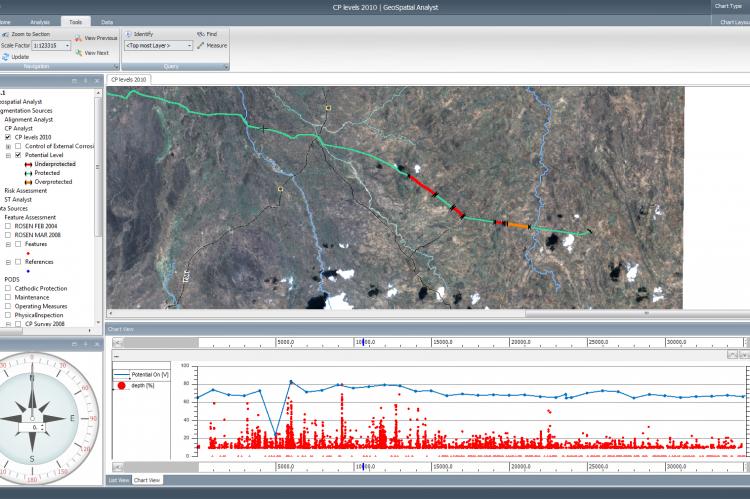Application of Proactive Risk Management in Pipeline Integrity

Risk management is an essential element in the pipeline integrity management process. Risk management involves not only the estimation of risk profiles and comparison against tolerable criterion but also ensuring that measures to treat the risk are effectively assessed and implemented. Performing risk assessments can assist operators and engineers in understanding critical
issues such as:
- which threats are more likely to endanger the pipeline’s integrity,
- which areas of the pipeline are more susceptible to failure from the active threats, and
- if failure occurs, how is the released product likely to be dispersed and possibly affect critical receptors.
If risk is managed proactively rather than reactively, operators should be able to apply preventative and mitigative measures early enough to prevent pipeline failure from occurring. In addition, adopting a proactive/preventative strategy would allow resources to be effectively utilized for the optimization of maintenance plans. Enabling such assessments requires an effective risk model, hence efforts are focused on modelling and estimating the risk of pipeline failure in a quantitative manner. Such models can be highly complex, detailed, and require large amounts of data integration; in addition, they need to generate risk factors in a consistent and transparent manner to support effective decision making.
ROSEN’s Quantitative Pipeline Risk Assessment Model (QPRAM) was developed to address the expectations and challenges inherent in identifying and assessing risk factors. QPRAM incorporates probability, consequence, and risk elements into a modular framework, and allows flexible construction of customized models to reflect specific applications such as pipeline location, fluid type, data availability and required level of complexity.
This paper describes how the QPRAM methodology was developed and implemented in collaboration with a European gas pipeline operator. A customized risk model was constructed together with the operator to reflect bespoke conditions and challenges associated with the operating environment, known threats, and data availability and quality. The model provides essential risk factors at high-resolution intervals along their lines, and was calibrated using real data to ensure that the resulting risk profiles are reflective of the threats and operating experience in their region.
The integration of pipeline data and the implementation of QPRAM is managed in ROSEN’s Asset Integrity Management Software (ROAIMS) suite. This enables the operator to identify and compare the risk of pipelines in their network, identify active threats to any pipeline, focus on areas with elevated risk, and assess the benefits of preventative mitigation measures. Managing data and assessments in a suite provides the added benefits of consistency and traceability.
Upon completion of risk assessments, proposed preventative and mitigative measures are analyzed together with other integrity assessments such as fitness-for-purpose assessments to provide an overall integrity management plan that provides guidance to the operators on what should be done, where and when, to ensure the pipeline’s integrity is proactively managed.
